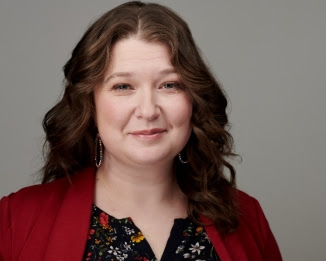Virtual reality could help treat eating disorders, Louisville researchers say
Published 1:10 pm Wednesday, May 1, 2024

- Cheri Levinson is an associate professor with the university and the director of Louisville’s Eating Anxiety Treatment (EAT) Lab. (Photo sourced from the Kentucky Lantern)
|
Getting your Trinity Audio player ready...
|
By Sarah Ladd
Kentucky Lantern
Kentucky researchers are developing and expanding a virtual reality treatment for eating disorders using a $125,000 grant from the National Eating Disorders Association, the University of Louisville announced Tuesday.
Eating disorders are widespread and can be deadly. The COVID-19 pandemic increased their prevalence in Kentucky.
About 9% of Americans live with eating disorders, which can lead to a “preoccupation” with food intake, weight, calories and more, according to NEDA. Girls are more likely to have disordered eating, the Lantern has reported.
Louisville researchers who study this issue want to expand the use of virtual reality (VR) technology that they have developed. This can help patients “face their fears of gaining weight” through simulations, they say. Researchers have already conducted a pilot study on such technology, which UofL says was “effective” in helping patients.
“Research shows exposure treatment can be really effective in taking back control over these devastating and life-altering fears,” Christina Ralph-Nearman, a UofL College of Arts and Sciences assistant research professor, researcher and co-inventor of the technology, said in a statement. “Our virtual simulation allows people to do that in a safe way.”
Cheri Levinson, an associate professor with the university and the director of Louisville’s Eating Anxiety Treatment (EAT) Lab, is currently leading several projects to tackle and treat eating disorders. In November, Levinson and her team were awarded an $11.5 million grant from the National Institutes of Health to study treatment options.
“Despite the high prevalence of eating disorders, there still aren’t many options for treatment and prevention,” Levinson said. “This work will not only create new options by leveraging technology, but open previously unopened doors for treating people on a personal, individual level.”
Levinson wants to use the grant money to expand this new technology to “more inclusive of all body types and sizes, ethnicities, races and gender identities and to further test outcomes in a clinical setting.”
“Eating disorders don’t just affect one type of person — there are a multitude of factors that can influence them,” she said. “Treatment and prevention options should reflect that full range of experience.”



